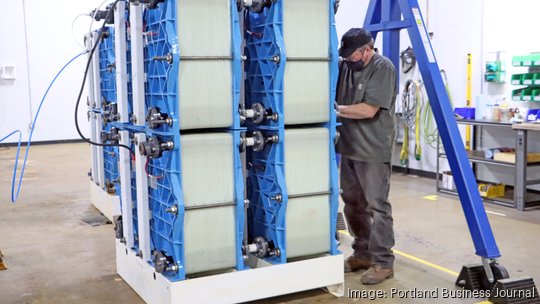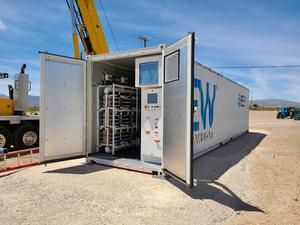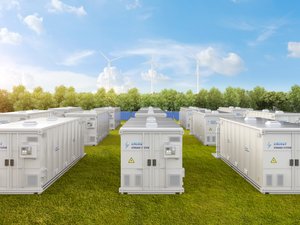
ESS (NYSE: GWH) has taken a step toward a major project in Germany in its continuing search for openings for its unique energy storage technology.
The Wilsonville company and German coal-power provider LEAG on Thursday announced an “initial agreement” for a 50-megawatt/500-megawatt-hour system.
A definitive agreement is expected in the third quarter this year, the companies said, with the system expected to be online in 2027. Reuters put the value of the deal at 200 million euros, about $219 million at the current exchange rate.
“We look forward to partnering with LEAG to develop the model for utilities and communities worldwide transitioning from coal to clean, renewable energy,” ESS CEO Eric Dresselhuys said in a statement.
ESS is aiming to edge into an energy-storage market dominated by lithium-ion systems with an alternative technology called an iron flow battery. A chief selling point is economical longer duration output, up to 12 hours.
The company went public in fall 2021 through a SPAC merger, raising around $250 million. It has poured tens of millions of dollars into building out its Wilsonville production capacity, but deliveries and revenue recognition have lagged expectations.
Dresselhuys recently said he was “pleased that we are making good progress, but we recognize the work we have yet to do to improve revenue recognition and scale our manufacturing.”
LEAG mines and generates power mainly with lignite, a particularly dirty form of coal. The Czech-owned company is looking to transition to cleaner energy with 7 to 14 gigawatts of renewables, 2 to 3 gigawatt-hours of energy storage and 2 gigawatts of hydrogen production.
“A key requirement for our transformation into Germany’s Green Powerhouse is the deployment of cost-effective long-duration energy storage,” Thorsten Kramer, CEO of LEAG, said in a statement. “We are energized to demonstrate the value of iron flow battery technology at scale.”






